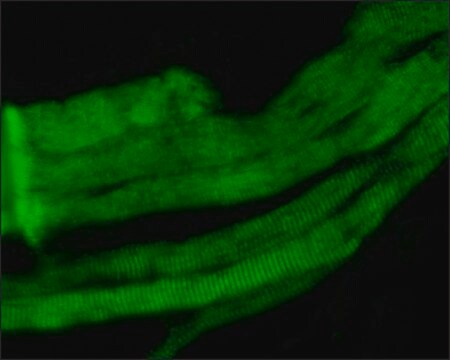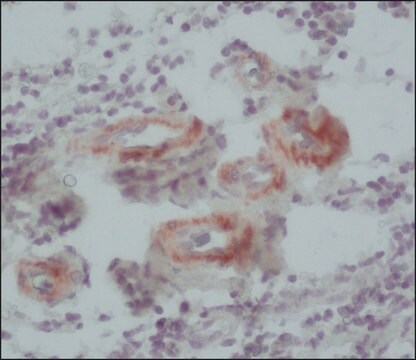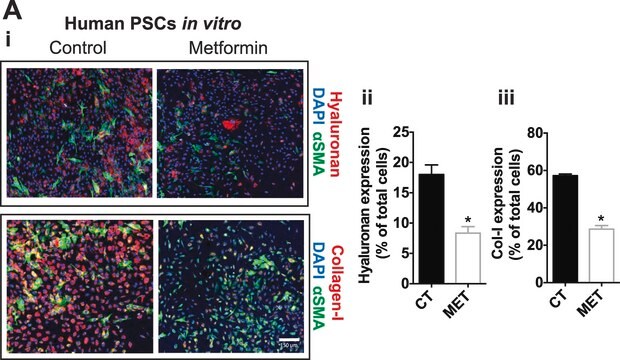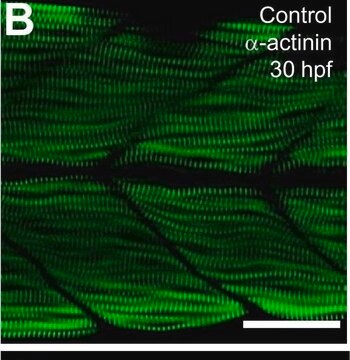Key Documents
M7786
Monoclonal Anti-Myosin (Smooth) antibody produced in mouse
clone hSM-V, ascites fluid
About This Item
Polecane produkty
pochodzenie biologiczne
mouse
Poziom jakości
białko sprzężone
unconjugated
forma przeciwciała
ascites fluid
rodzaj przeciwciała
primary antibodies
klon
hSM-V, monoclonal
masa cząsteczkowa
antigen 200-204 kDa
zawiera
15 mM sodium azide
reaktywność gatunkowa
guinea pig, human, pig, canine, rabbit, chicken
metody
immunohistochemistry: 1:500 using and animal frozen section using acetone fixed human.
immunohistochemistry: suitable using using methacarn-fixed, paraffin-embedded sections of human and animal tissue
immunoprecipitation (IP): suitable
western blot: suitable
izotyp
IgG1
numer dostępu UniProt
Warunki transportu
dry ice
temp. przechowywania
−20°C
docelowa modyfikacja potranslacyjna
unmodified
informacje o genach
human ... MYH11(4629)
Opis ogólny
Specyficzność
Immunogen
Zastosowanie
- immunoblotting
- immunoprecipitation
- immunohistochemistry
- immunocytochemistry
- flow cytometry
- immunofluorescence
Działania biochem./fizjol.
Oświadczenie o zrzeczeniu się odpowiedzialności
Nie możesz znaleźć właściwego produktu?
Wypróbuj nasz Narzędzie selektora produktów.
Kod klasy składowania
10 - Combustible liquids
Klasa zagrożenia wodnego (WGK)
WGK 2
Temperatura zapłonu (°F)
Not applicable
Temperatura zapłonu (°C)
Not applicable
Certyfikaty analizy (CoA)
Poszukaj Certyfikaty analizy (CoA), wpisując numer partii/serii produktów. Numery serii i partii można znaleźć na etykiecie produktu po słowach „seria” lub „partia”.
Masz już ten produkt?
Dokumenty związane z niedawno zakupionymi produktami zostały zamieszczone w Bibliotece dokumentów.
Klienci oglądali również te produkty
Nasz zespół naukowców ma doświadczenie we wszystkich obszarach badań, w tym w naukach przyrodniczych, materiałoznawstwie, syntezie chemicznej, chromatografii, analityce i wielu innych dziedzinach.
Skontaktuj się z zespołem ds. pomocy technicznej









